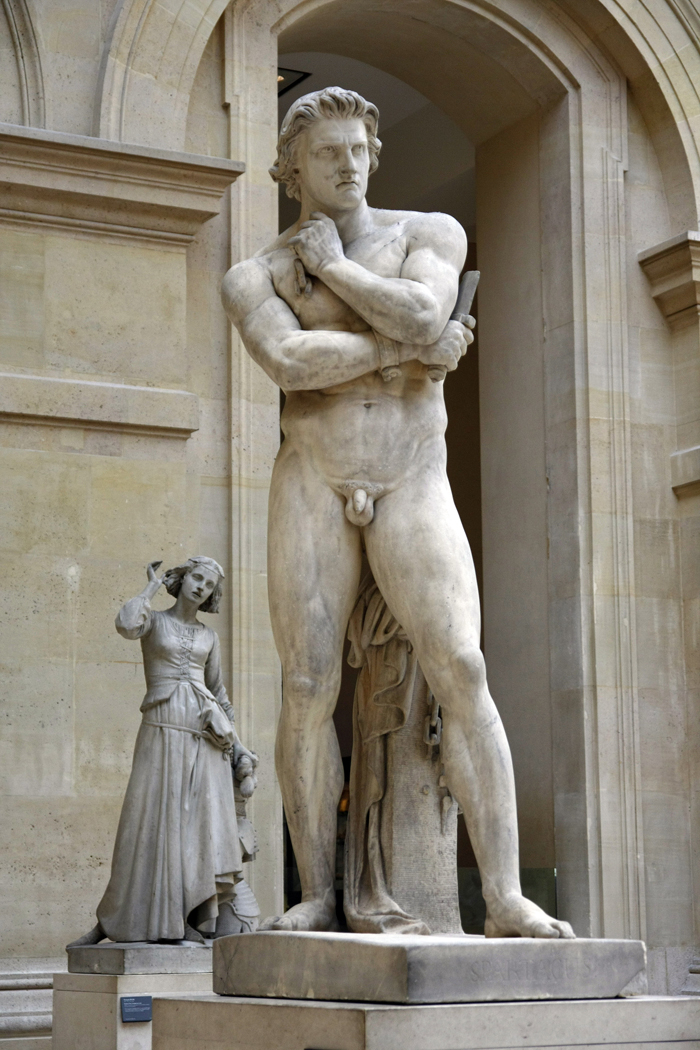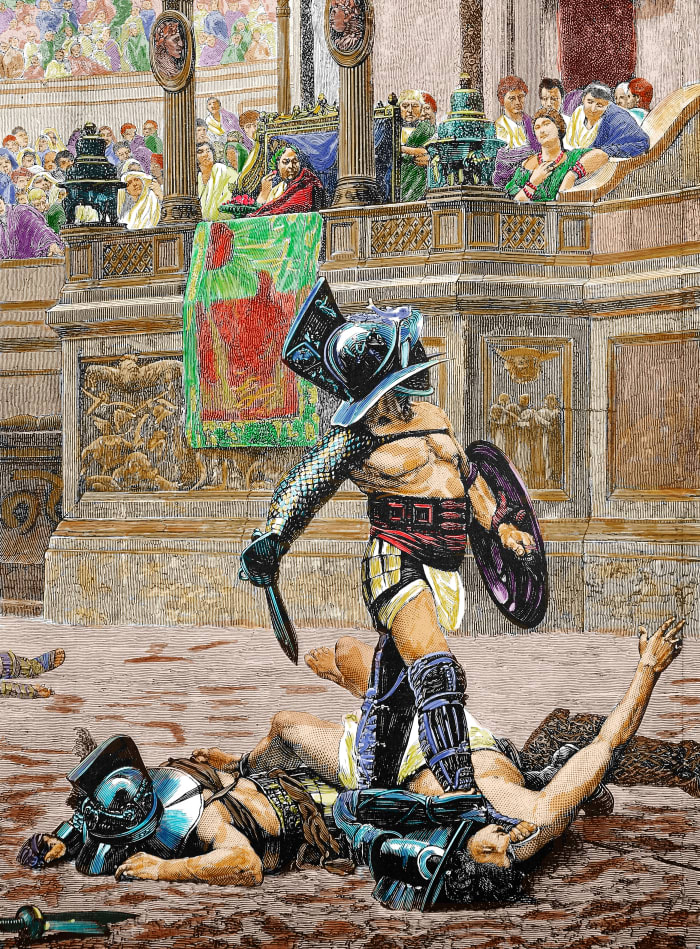Spartacus

The first Famous Roman Gladiator we would like to share is Spartacus. He was a man with a powerful and sharp personality. He was born in Thracia, which was a sovereign nation before becoming a Roman province. On the Balkan peninsula, Thrace is renowned for its well-trained troops who fight with swords and sickles. Spartacus began his career as a Thracian mercenary in the Roman military. He was eventually, nonetheless, banished to the gladiator school at Capua (west coast of the Apennine peninsula) as a result of his poor conduct and lack of discipline. Spartacus developed his skills as a gladiator there. After murdering another gladiator while working there as a fencing instructor, he was moved to Batiatus' school, a challenging and high-security institution.
Spartacus' rebellion started in 73 BC. In this campaign, Spartacus was joined by 70 gladiators, mostly Thracians, and Gauls. Soon after, with the aid of Spartacus, roughly 70 gladiators who were all well-prepared with homemade weapons escaped from the gladiator school as part of a rebellion. Crixus was one among the fugitives, and he quickly rose to become Spartacus' right-hand man. Spartacus took his legion to Mount Vesuvius, camped there, and awaited the arrival of the Romans. The army of Spartacus liberated a large number of slaves along the route, greatly increasing the number of his allies. In a short period of time, he had gathered a sizable army, and on more than six separate times, he had routed the Roman legions sent to take them. Marcus Licinius Crassus, however, led a group of 50,000 skilled soldiers in 71 BC to inflict devastation on Spartacus' insurgent army. The saga of Spartacus, the most well-known gladiator in Roman history, came to an end when he was unable to resist a planned onslaught by the Roman army and was murdered in Southern Italy.
Spartacus has come to represent communists and socialists in modern society. Spartacus was hailed by Karl Marx as one of his heroes, the most brilliant man in all of history, a magnificent general, a noble man, and a true representative of the proletariat in antiquity. Leftist revolutionaries, particularly the German Spartacus League from 1915 to 1918, the precursor to the German Communist Party, drew heavily on Spartacus as an inspiration. The Spartacist revolt refers to a communist insurrection that took place in Germany in January 1919. In addition, one of the oldest communal left-wing bookshops in North America, Book Spartacus, is named in his honor. Or Spartacus is also the name of the Ukrainian settlement of Spartak, which is located in Donetsk Oblast.
To conclude more succinctly, Spartacus:
- was a Thracian soldier who was captured by the Romans and sold as a slave, and eventually trained as a gladiator.
- led an army that waged revolts against the Romans.
- became a symbol of communists and socialism.




